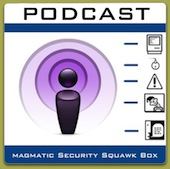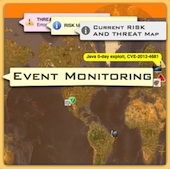Java for Mac OSX 10.5 Update 5
 Thursday, September 3, 2009 at 05:20PM
Thursday, September 3, 2009 at 05:20PM Apple-SA-2009-09-03-1 Java update 5 addresses various CVE-ID for Mac OSX 10.5 client and servers running the follow Java versions below:
- Java 1.6.0_13 had serious vulnerabilities including allowing an untrusted Java Applet to elevate privileges
- Java 1.5.0_19 had serious vulnerabilities including allowing an untrusted Java Applet to elevate privileges
- Java 1.4.2_21 had serious vulnerabilities including allowing an untrusted Java Applet to elevate privileges
In addition CVE-2009-2205 related to a stack buffer overflow in the command launcher in Java Web Start. This resulted in a unexpected application termination or arbitrary code execution. This update will require a restart.
If you manually installed Java or want to download the update it can be found at the following link http://support.apple.com/downloads/







